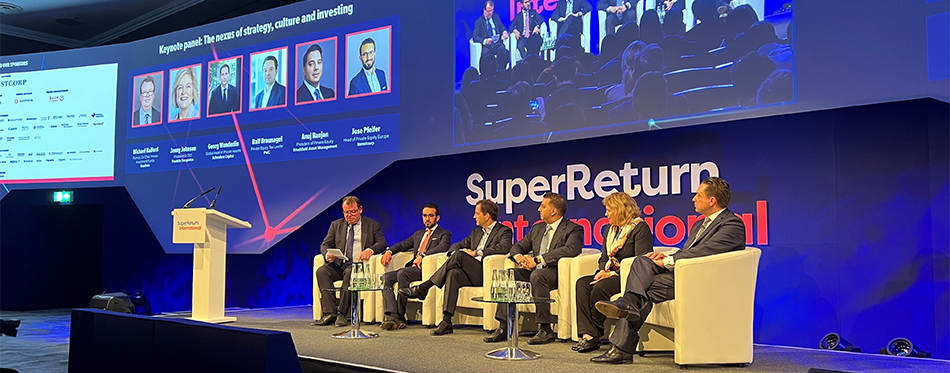More than 4,000 general partners (GPs), limited partners (LPs) and advisors to the private equity industry attended this year’s SuperReturn conference in Berlin, the largest turnout to date. In another sign of just how mainstream this industry has become, Kim Kardashian gave a keynote interview – but while her arrival generated much excitement, the overall mood was reflective.
Investors are rethinking their approach as we enter a new era for the industry. The macro backdrop is as complex as ever, with high inflation, rising interest rates and ongoing geopolitical tensions. In addition, the industry is attracting scrutiny from broader society like never before.
In response, Private Equity (PE) is adapting and further professionalizing. This means innovation and revisiting strategies from the period before loose monetary policy. And as firms refine their strategies, the way they communicate – to their investors, investments, future talent and other stakeholders – will need to evolve too.
The challenge to get deals done
Many GPs are struggling to raise capital, exit investments and strike new deals in the current environment. LPs are overexposed to PE because of the denominator effect, sellers are reluctant to exit at a discount and buyers are deterred by high prices and expensive debt.
Dealmakers are putting even more thought into exits given the lack of bullishness among buyers and volatility in public markets. Exit windows are becoming shorter and planning for exits, including communications preparedness, needs to begin earlier.
The deals that will get done are likely to be more complex too. Expect more minority deals, club deals for larger assets and highly regulated take-privates, and even renewed interest in sectors previously shunned (defence and fossil fuels to name a couple) – structures and sectors that bring unique communications opportunities and challenges.
New horizons
As GPs look to new markets to sustain growth, they will need to be prepared to respond to more questions about where and with whom they are doing business. Whether pausing or continuing activity in countries like China, stakeholders will want to understand GPs’ approach and rationale.
Democratizing private equity by opening the asset class up to wealthy retail investors will be an important driver of continued growth – particularly as LPs reduce their exposure. This will require GPs to communicate with new audiences through new channels and with bespoke messaging.
The race for capital will drive industry consolidation. The market will evolve into large global multi-strategy firms and smaller-scale firms specialized in particular sectors or regions. GPs will need to explain their corporate-level strategy to LPs and talent, as well as navigate more GP-level M&A situations.
Rolling up our sleeves
One point that everyone agreed on: the investment approach that worked for the last ten years will not work for the next ten. The emphasis needs to shift from multiple expansion and financial leverage to margin improvement, enhanced cashflow and higher ROIC (Return on invested capital).
A strong and differentiated brand will be key to winning capital and deals. GPs need to communicate a clear investment approach, from a compelling sector focus to expertise in mission-critical areas like procurement, digital, ESG and talent management.
Generative AI was often cited as a new lever for value creation. Some GPs are using AI for sourcing and assessing investment opportunities. At portfolio companies, the technology can improve productivity and revenue generation. But GPs also will need to be ready for questions on how AI might impact jobs, personal data and security.
Coming of age
The turnout at this year’s SuperReturn was a sign of just how large the private capital industry has become. The industry also is playing a more prominent role in the most important areas shaping the world today, such as healthcare, technology, climate transition and aging demographics.
With greater scale and more influence on people’s lives, private capital is catching the eye of governments, media, NGOs and other stakeholders like never before. GPs increasingly need to have the capabilities to engage stakeholders like governments to protect their licence to operate.
The maturation of the industry also is marked by the transition from founder-led partnerships to brand-led institutions. Strong corporate culture and internal communications will be a driver of success for larger, global firms – embedding the right values, engaging staff and attracting the best talent.
This new era is full of opportunities with more diverse offerings, new sources of capital, expanded geographic reach and emerging technologies. The GPs with the strongest reputations, differentiated brands, and right networks and communications capabilities will be better positioned to reap the benefits.


